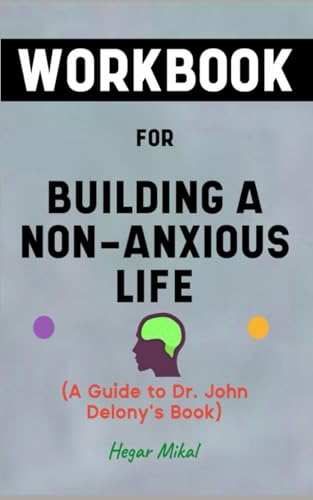The Loneliness Generation: Understanding The Findings Of Dr. John Delony's Research

Table of Contents
Dr. John Delony, a leading expert in the field of social psychology and human connection, has dedicated years to researching the complexities of loneliness and social isolation in modern society. His research encompasses a wide range of age groups, utilizing both quantitative and qualitative methodologies to paint a comprehensive picture of this growing societal issue.
The Defining Characteristics of "The Loneliness Generation"
Dr. Delony's research identifies several key characteristics that define "The Loneliness Generation," a term coined to describe the increased prevalence of loneliness among younger demographics.
The Technological Isolation Paradox
Ironically, increased connectivity through technology has paradoxically fueled feelings of loneliness and social isolation. This "digital loneliness" is a significant finding in Dr. Delony's work.
- Superficial Connections: Social media platforms often prioritize quantity over quality of connections, leading to a sense of superficiality and lacking genuine intimacy.
- Fear of Missing Out (FOMO): Constant exposure to others' seemingly perfect lives online fosters feelings of inadequacy and a persistent fear of missing out on social events or experiences.
- Unrealistic Social Comparisons: The curated nature of online profiles often leads to unrealistic social comparisons, further exacerbating feelings of inadequacy and loneliness.
- Cyberbullying and Online Harassment: The anonymity offered by the internet can embolden negative behaviors, leading to cyberbullying and online harassment, which can significantly impact mental well-being and social connection.
- Online Disconnection: While technology facilitates communication, it often replaces face-to-face interactions, resulting in a lack of genuine human connection and increased feelings of social isolation.
Shifting Social Structures & Support Systems
Dr. Delony also points to significant societal shifts that contribute to the rise of loneliness within "The Loneliness Generation."
- Weakening Community Ties: The decline of traditional community structures, such as strong neighborhood networks and local clubs, reduces opportunities for spontaneous social interactions and the development of meaningful relationships.
- Social Fragmentation: Increased geographical mobility, driven by factors such as economic opportunities and educational pursuits, means individuals are less likely to maintain long-term, close relationships with their social networks.
- Lack of Social Support: The changing family structures and reduced reliance on extended family networks mean individuals have fewer readily available support systems during times of stress or difficulty. This lack of social support can significantly contribute to feelings of isolation and loneliness.
Dr. Delony's Key Findings on the Causes of Loneliness
Dr. Delony's research reveals compelling correlations between loneliness and various factors.
Mental Health Correlation
A strong correlation exists between loneliness and various mental health challenges. Dr. Delony's data demonstrates a significant link between:
- Loneliness and Depression: Individuals experiencing prolonged loneliness are at a much higher risk of developing depressive disorders. This connection is often cyclical, where depression can worsen feelings of social isolation and further intensify loneliness.
- Anxiety and Isolation: Loneliness is often accompanied by high levels of anxiety, as individuals struggle with feelings of insecurity and fear of rejection. This anxiety can hinder their ability to build and maintain healthy social relationships.
- Mental Health Consequences of Loneliness: The long-term effects of loneliness can be detrimental to mental well-being, increasing the risk of other mental health problems and impacting overall quality of life.
Socioeconomic Factors
Dr. Delony's research also highlights the significant role of socioeconomic factors in contributing to loneliness and social isolation:
- Socioeconomic Disparities: Individuals facing poverty, unemployment, or lack of access to resources are often disproportionately affected by loneliness. These factors can limit their opportunities for social engagement and participation in community activities.
- Poverty and Isolation: Poverty can lead to social exclusion, limiting access to social networks and support systems, which further exacerbates feelings of isolation.
- Inequality and Loneliness: Social inequality and lack of access to resources contribute to feelings of marginalization and isolation, increasing vulnerability to loneliness.
Dr. Delony's Recommendations and Potential Solutions
Dr. Delony's research doesn't merely identify the problem; it also proposes effective strategies for combating loneliness.
Promoting Meaningful Connections
Dr. Delony advocates for proactive measures to foster meaningful connections:
- Building Social Connections: Encouraging participation in community groups, joining clubs based on shared interests, volunteering, and engaging in hobbies are all effective ways to meet new people and build social connections.
- Combating Loneliness: Practicing mindfulness, actively cultivating existing relationships, and making a conscious effort to reach out to others are crucial steps in combating loneliness.
- Overcoming Social Isolation: Prioritizing face-to-face interactions and limiting excessive reliance on technology for social connection are key strategies for overcoming social isolation.
Policy Recommendations
Dr. Delony also emphasizes the need for policy-level interventions:
- Public Health Initiatives: He advocates for the integration of loneliness prevention and intervention strategies into public health initiatives.
- Community Programs: Investing in community programs designed to foster social connection and support vulnerable populations is crucial.
- Government Policies on Loneliness: Governments need to recognize loneliness as a significant public health concern and develop policies to address it effectively.
Conclusion
Dr. John Delony's research on "The Loneliness Generation" unveils a critical societal challenge. His findings highlight the profound impact of loneliness on mental health and overall well-being, driven by factors ranging from technological isolation to socioeconomic disparities. However, his work also offers hope, outlining practical strategies for individuals and policy recommendations for governments to combat this growing epidemic. Understanding "The Loneliness Generation" is the first step toward creating a more connected and supportive society. Join the fight against loneliness. Learn more about Dr. Delony's work and explore resources to combat loneliness and social isolation. [Link to resources, if available].

Featured Posts
-
 Is A Logitech Forever Mouse Finally Possible
May 19, 2025
Is A Logitech Forever Mouse Finally Possible
May 19, 2025 -
 Eurovision 2025 Luca Haennis Potential Role Revealed
May 19, 2025
Eurovision 2025 Luca Haennis Potential Role Revealed
May 19, 2025 -
 Urgent Warning From Martin Lewis Four Weeks Left To Act On Your Post
May 19, 2025
Urgent Warning From Martin Lewis Four Weeks Left To Act On Your Post
May 19, 2025 -
 The Financial Realities Of Marrying An A List Celebrity
May 19, 2025
The Financial Realities Of Marrying An A List Celebrity
May 19, 2025 -
 Celebrity Pay Gap Comparing Colin Josts And Scarlett Johanssons Earnings
May 19, 2025
Celebrity Pay Gap Comparing Colin Josts And Scarlett Johanssons Earnings
May 19, 2025
